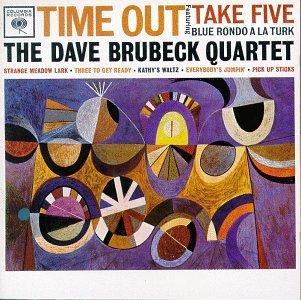 Dad's Take:
Dad's Take:I've been looking forward to this one probably about as much as Brad hasn't been, but I'm hoping Brad might see the light.
Bob Dylan's first album didn't get much attention, but this second disc introduced him as the major new force in folk music. Innovative lyrics, social relevancy, solid playing, revolution, and that voice that some people have trouble getting used to but that delivers the songs so perfectly--all of this helped define the music of the sixties. Dylan is to folk music what the Beatles are to rock and roll: a redefining iconoclast that changed everything that came after.
Of course, there was no way to know that when this album first surfaced. There was no way to predict how much Dylan would affect all genres of popular music. There was just a collection of great songs. "Blowin' in the Wind," "Masters of War," "Don't Think Twice, It's All Right," "A Hard Rain's A-Gonna Fall." There's anger, frustration, acidic wit, and beauty in these songs and in most of this album.
Sure, Dylan is not always easy to listen to, but that's true of so many great artists. He challenges you to listen and to think, to look below the surface and see the world. Not since Woody Guthrie had the folk music scene been forced to really see like this. Not since Woody Guthrie had folk music sounded this fresh and bitter at the same time.
We'll hear more Dylan in our list, but few of those albums will have exciting vibe of Dylan's breakout effort. I can't listen to this record enough.
Brad's Take:
My dad was right. I was not looking forward to this album. I've never been a real fan of Bob Dylan. Off the top of my head, the only Bob Dylan song I could name is "Blowin' In The Wind" but I have listened to a punk rock cover of it hundreds of times more than I have listened to the original. I won't ever disagree that he's a classic musician, but I just personally haven't been able to get into his music at all before so I went into this very pessimistically. Since that isn't very fair though, I will try to give this an unbiased review...
Bob Dylan's known mainly for his voice and his lyrics. Robert's voice is hard to get used to at first, but I got used to it on this album. Whether you get used to his unique voice or not, there's no denying that his lyrics are great. His lyrics are very politically charged, like every folk album that came out in the 60s.
As a guitar player myself, I was slightly annoyed that Ol' Bobby's guitar was noticeably out of tune on "Down The Highway" and a couple of others. Also, some of the really high harmonica notes he plays almost killed me, like the final drawn out note in "Girl From North Country." I've never been a real fan of the harmonica...
To me, this album sounds like a guy sitting on his front porch, imperfectly playing his slightly out of tune guitar but singing songs from his heart. But Freewheelin' launched Bob Dylan's career instantly, and it was well earned.
Although I was not excited to listen to an entire Bob Dylan album, I found myself to accept it about halfway through. There weren't any songs I loved, or any that I like-liked, but there weren't any songs I hated either. It's not my typical cup of tea, but for what it is, it's great. It's a perfect snapshot of the 60s folk music scene.











